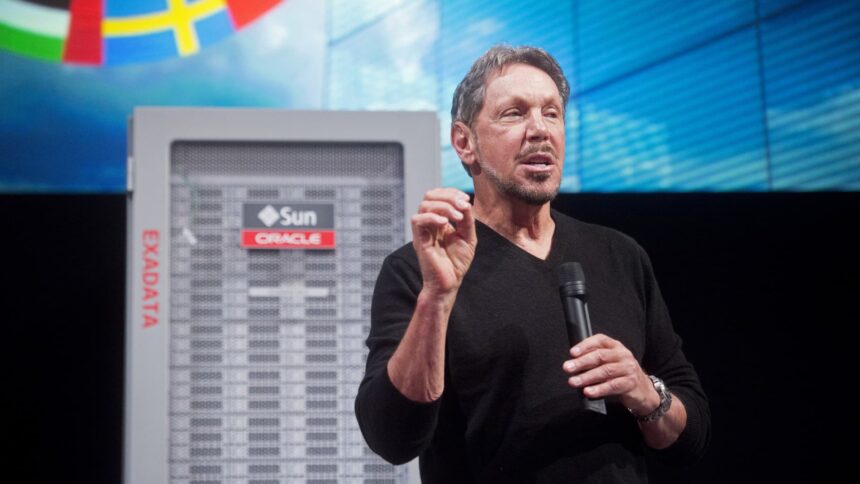Oracle Corporation’s ambitious outlook for cloud infrastructure is creating a ripple effect across the tech industry. During a recent launch event at its headquarters in Redwood Shores, California, CEO Larry Ellison unveiled projections of soaring sales, predicting a substantial reach of $114 billion in the company’s fiscal year 2029. This optimistic forecast highlights the ongoing demand for artificial intelligence processing, prompting Oracle to expand its data center capabilities significantly.
UBS analyst Karl Keirstead elaborated on Oracle’s ambitious growth strategy, noting that the company anticipates a remarkable 14x expansion in their cloud infrastructure segment over the next five years, largely driven by the escalating demand for Graphics Processing Unit (GPU) cloud services. Keirstead’s insights included a bullish forecast for capital expenditures of $35 billion in fiscal 2026, indicative of strong collaboration with Nvidia and other AI hardware suppliers, as well as ecosystem partners committed to financing and building Oracle’s GPU data centers.
The announcement led to a remarkable 40% surge in Oracle’s stock prices, which in turn triggered a favorable reaction among companies supplying hardware for the cloud infrastructure buildout. Nvidia, a key player in the AI landscape, experienced a 4% increase in its shares. The company claims that its chips and computing systems account for approximately 70% of the total expenses of an AI data center.
Moreover, Taiwan Semiconductor Manufacturing Company, a crucial supplier for Nvidia and other AI-centric enterprises, reported a significant 34% rise in sales for August, leading to a corresponding 4% surge in its stock. Broadcom, which manufactures networking equipment essential for Nvidia’s chips, saw its shares climb 9%, reflecting the heightened demand for AI-capable technology.
Advanced Micro Devices (AMD), recognized as a major competitor to Nvidia in the graphics processor market, saw a 3% increase in its stock, even though it currently holds a limited market share compared to Nvidia. Additionally, Micron Technology, which produces the memory components critical to Nvidia’s advanced chips, also experienced a 4% rise. Server manufacturers Super Micro and Dell, both of which create comprehensive systems around Nvidia’s technology, notably increased by 4% as well.
Oracle’s Chief Financial Officer, Safra Catz, reinforced the company’s strategic focus by stating that a substantial portion of their capital expenditures is dedicated to revenue-generating equipment intended for data centers.
Among the noteworthy beneficiaries of the optimistic climate was CoreWeave, a competitor in the so-called neo-cloud space, which saw its stock skyrocket by 20%. CoreWeave is positioned as an alternative provider to major cloud players like Google, Amazon, and Microsoft, focusing on enhanced access and tools for artificial intelligence applications.
Overall, the convergence of Oracle’s growth forecast with the burgeoning demand for AI infrastructure appears poised to sustain the momentum across the tech sector, propelling a wide array of companies to new heights.







